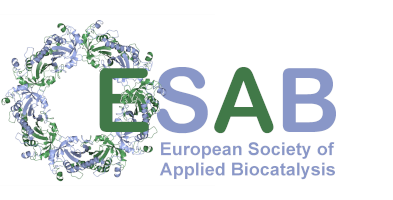Design and Engineering of Enzymes with New Function
Abstract
The field of biocatalysis has advanced to the stage where it is now viewed as a key enabling technology for the development of a greener and more efficient chemical industry. Adaption of nature’s enzymes through laboratory evolution has delivered efficient biocatalysts with altered substrate, stability and selectivity profiles. However, for many important chemical transformations there are no suitable enzymes known that can serve as starting templates for enzyme engineering. Here I will show how a combination of computational enzyme design and directed evolution can generate efficient enantioselective enzymes for complex chemical transformation that are not known in nature, including the Morita Baylis Hillman reaction. We also show how the range of catalytic mechanisms accessible with designer enzymes can be expanded by encoding new catalytic elements asnon-canonical amino acid side chains. We are optimistic that this integration of enzyme design, genetic code expansion and laboratory evolution can provide a versatile strategy for creating enzymes with catalytic functions not accessible to nature.
About the Speaker(s)
 Dr Sarah Lovelockisa reader and UKRI Future Leader Fellow at the Manchester Institute of Biotechnology. She was awarded her PhD in 2014 from the University of Manchester where she worked under the supervision of Prof. Nicholas Turner. Following her PhD she joined Glaxo SmithKline as a senior scientist where her primary focus was engineering enzymes for use in manufacturing processes. In 2017 she moved back to academia as a postdoctoral fellow, and in 2020 was awarded a Presidential Fellowship allowing her to start her independent research group. Herresearch focusses on engineering biocatalysts for applications in sustainable chemical manufacturing. She has expertise in enzyme design, directed evolution, and the development of biocatalysts using an expanded genetic code. She also has a particular interest in the development of biocatalytic approaches for the synthesis of therapeutic oligonucleotides. Website:https://www.lovelockresearchgroup.co.uk/
Dr Sarah Lovelockisa reader and UKRI Future Leader Fellow at the Manchester Institute of Biotechnology. She was awarded her PhD in 2014 from the University of Manchester where she worked under the supervision of Prof. Nicholas Turner. Following her PhD she joined Glaxo SmithKline as a senior scientist where her primary focus was engineering enzymes for use in manufacturing processes. In 2017 she moved back to academia as a postdoctoral fellow, and in 2020 was awarded a Presidential Fellowship allowing her to start her independent research group. Herresearch focusses on engineering biocatalysts for applications in sustainable chemical manufacturing. She has expertise in enzyme design, directed evolution, and the development of biocatalysts using an expanded genetic code. She also has a particular interest in the development of biocatalytic approaches for the synthesis of therapeutic oligonucleotides. Website:https://www.lovelockresearchgroup.co.uk/
